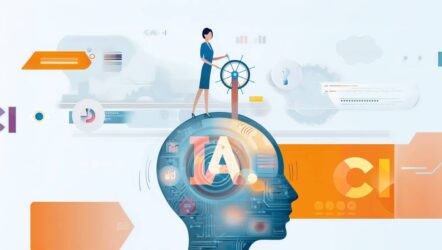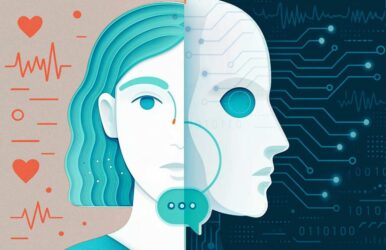Sometimes, they seem to have a life of their own. In the media, on social networks, in everyday conversations at home, at work or with friends, there is no lack of mention of them. Since they appeared, ChatGPT, Midjourney and the hundreds of new applications that are launched every week do not cease to generate news and controversy.
In this article, based on a paper written by OpenAI, we tell you how AI could impact many of today’s professions.
The short and powerful story behind ChatGPT
It seems like years ago, but ChatGPT is among us and accessible just a few months ago. This conversational chat that resembles how we humans write and speak was launched by OpenAI, open to the public, in November 2022.
The evolution that generates controversy
The evolution of GPT-3.5 (i.e. the intelligence behind ChatGPT) is already here: GPT-4. Its capabilities are astonishing, and this is what prompted a request from personalities linked to the world of technology to halt for 6 months the advances beyond GPT-4.
These personalities include Elon Musk, Steve Wozniak, Tristan Harris, Emad Mostaque and Yuval Noah Harari, among many others. They expressed themselves through a letter, in which they express the possible risk that Artificial Intelligence implies if it is not properly controlled.

The impact of the vertiginous advance of artificial intelligence reaches many dimensions of society. One of the main concerns has to do with its impact on the world of work.
One of the fears is that AI programs will render many professions and activities obsolete. On the other hand, there are those who argue:
The debate is open and is just beginning.
The end of some professions?
The end of some professions?
A few months ago we started to share with you what Artificial Intelligence is all about, how it was born, its concrete uses and tools that allow maximizing the work in Internal Communication.
It is clear that AI is part of several work automation processes, and that it has been replacing some tasks so far performed exclusively by humans. According to the report “Consumer Trends 2023”, by the SURA Observatory, this type of innovation will advance exponentially “being increasingly accessible and present in people’s daily lives”.
An unpredictable horizon
Automation, as we understand it today, focused mainly on mechanical and repetitive tasks. But generative AI, which is beginning to expand to creative and higher value-added activities, is starting to show a real risk for professions that did not seem possible to automate. We can mention some such as software development, marketing and communication, finance, journalism and graphic design, among many others.
Experts assure (it is not yet possible to estimate the time frame) that several professions are beginning to experience a decrease in demand, and that they will eventually have to adapt or change in order not to become obsolete.
In any case, they also explain that AI will certainly not completely replace a profession, but will provide support and be a useful tool to improve efficiency and quality of work.
Difficult to replace -for the moment-.
On the other hand, there are other professions that are much more difficult to replace. They are those that require empathy, such as teaching, since teaching involves, in addition to transmitting information, helping, guiding and motivating students.
Other activities that would be irreplaceable are those that maintain human contact such as nursing, psychologists, occupational therapists that require interpersonal skills and an emotional understanding that AI lacks.

Musicians, writers or actors, which require creativity and the personal imprint of artists, are also very difficult to replace.
And, on the other hand, the question arises: do we really want to replace the activities we like to do, and what would be the point of such a change?
New professions
But it’s not all gloomy. AI would also generate new and even better jobs. Some of them are already starting to appear such as:
- AI specialists in charge of creating and maintaining automated systems.
- Cyber security specialists, who protect systems and data from potential threats.
- Digital skills trainers, to teach how to use new technologies.
- Digital transformation consultants, helping companies to adopt and make the most of technology.

The future is uncertain and, as is often the case, difficult to predict. But we do know one thing: it is necessary to understand this new technology and be prepared to live with it.





